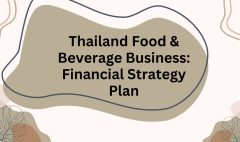Sustainable Agriculture
Sustainable Agriculture
Embark on the path of sustainability with your MBA. Learn how you can spearhead the Green Revolution in agriculture, merging business acumen with environmental stewardship for a safer, greener planet.
Introduction: As global challenges like climate change and food insecurity intensify, the call for sustainable agriculture becomes more urgent — and MBA graduates are uniquely positioned to answer this call. With a blend of strategic foresight, managerial expertise, and a passion for sustainability, MBAs can drive the Green Revolution, transitioning the agricultural sector towards practices that are not just profitable, but also environmentally friendly and socially responsible. This article explores the pivotal role MBA graduates can play in fostering sustainable agriculture, ensuring food security, and safeguarding our planet’s future.
Why Sustainable Agriculture?
- Environmental Imperative: Traditional farming methods can be detrimental to the environment. Sustainable practices help preserve biodiversity, improve soil health, and reduce greenhouse emissions.
- Economic Sense: Consumers are increasingly eco-conscious, creating a growing market for sustainably produced goods.
- Social Responsibility: Sustainable agriculture considers the social aspect of farming, promoting fair labor practices and community engagement.
MBA Skills for the Green Revolution:
- Systems Thinking: Understanding the interconnectedness of ecosystems is crucial. MBAs can apply systems thinking to balance ecological health with economic viability.
- Innovation Management: Introducing and managing technological innovations that boost yield sustainably and reduce waste.
- Stakeholder Engagement: Collaborating with farmers, consumers, governments, and NGOs to create sustainable value chains.
- Strategic Sustainability: Integrating sustainability into core business strategies, ensuring it’s not an afterthought but a fundamental business principle.
- Risk Management: Assessing and mitigating risks associated with climate change and market fluctuations in the context of agriculture.
Planting the Seeds of Change:
- Education: Continuously educate yourself and your community about the importance and methods of sustainable agriculture.
- Advocacy: Use your influence to advocate for policies and investments that support sustainable farming practices.
- Partnerships: Form strategic partnerships with organizations and tech companies that are pioneering agricultural sustainability.
- Transparency: Implement transparent practices and encourage others to do the same, building consumer trust and loyalty.
Valuable Resources:
- “The Sustainable Agriculture Network” (http://www.sustainableagriculture.net/) offers resources and advocates for national policies that support sustainable agriculture.
- “FAO” ( http://www.fao.org/sustainability/en/) provides extensive resources on food security and sustainability from a global perspective.
- “Agricultural Sustainability Institute at UC Davis” ( https://asi.ucdavis.edu/) conducts research and offers programs focused on agricultural sustainability.
- Online courses like “Sustainable Agricultural Land Management” on Coursera ( https://www.coursera.org/learn/sustainable-agricultural-land-management) can enhance understanding of sustainable practices.
Conclusion: MBA graduates stand at the forefront of a transformative era in agriculture. By leading the Green Revolution, you’re not just contributing to environmental conservation and food security; you’re also paving the way for a sustainable business model that is resilient, ethical, and profitable. The future is green, and with your MBA, you’re equipped to lead the charge.








